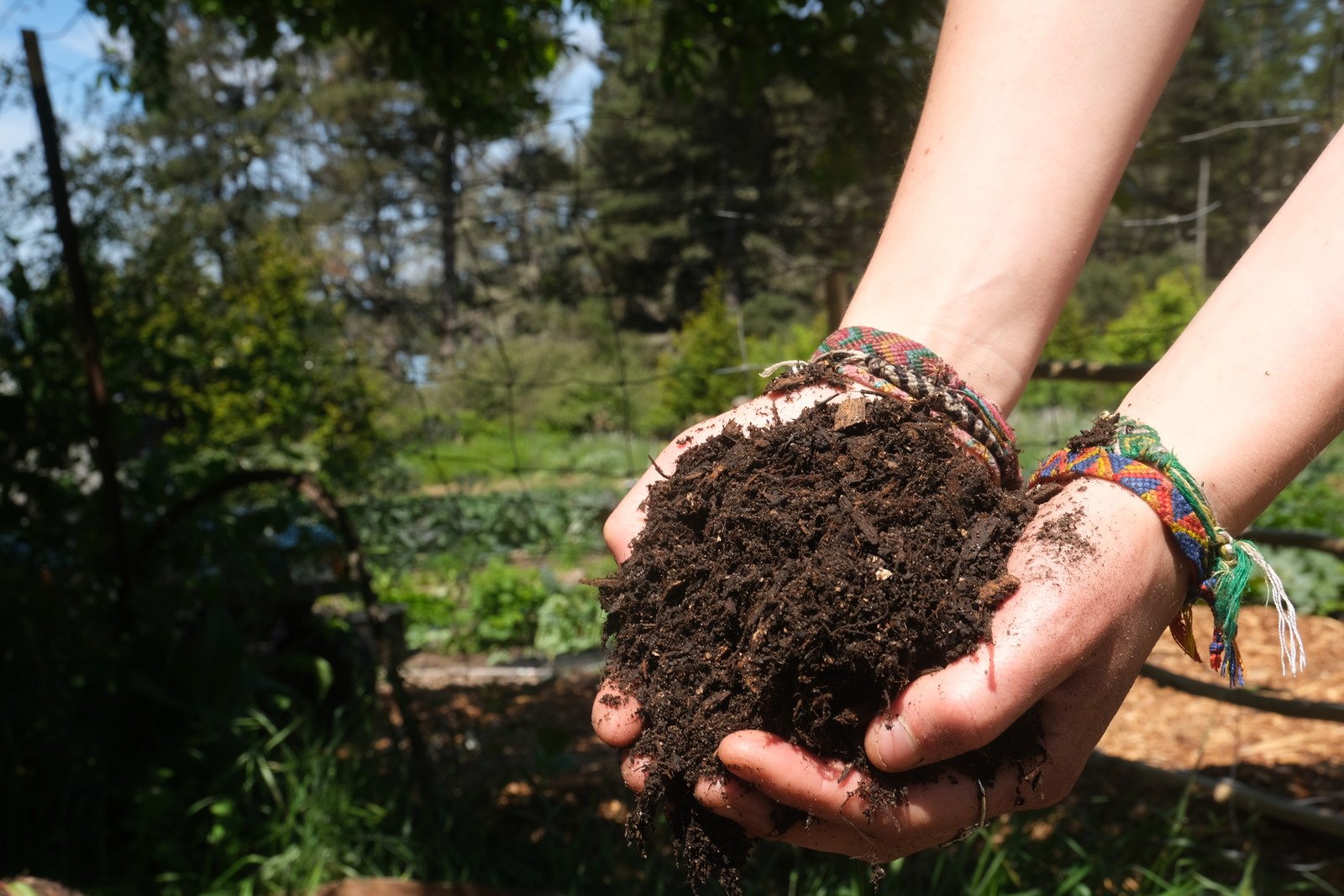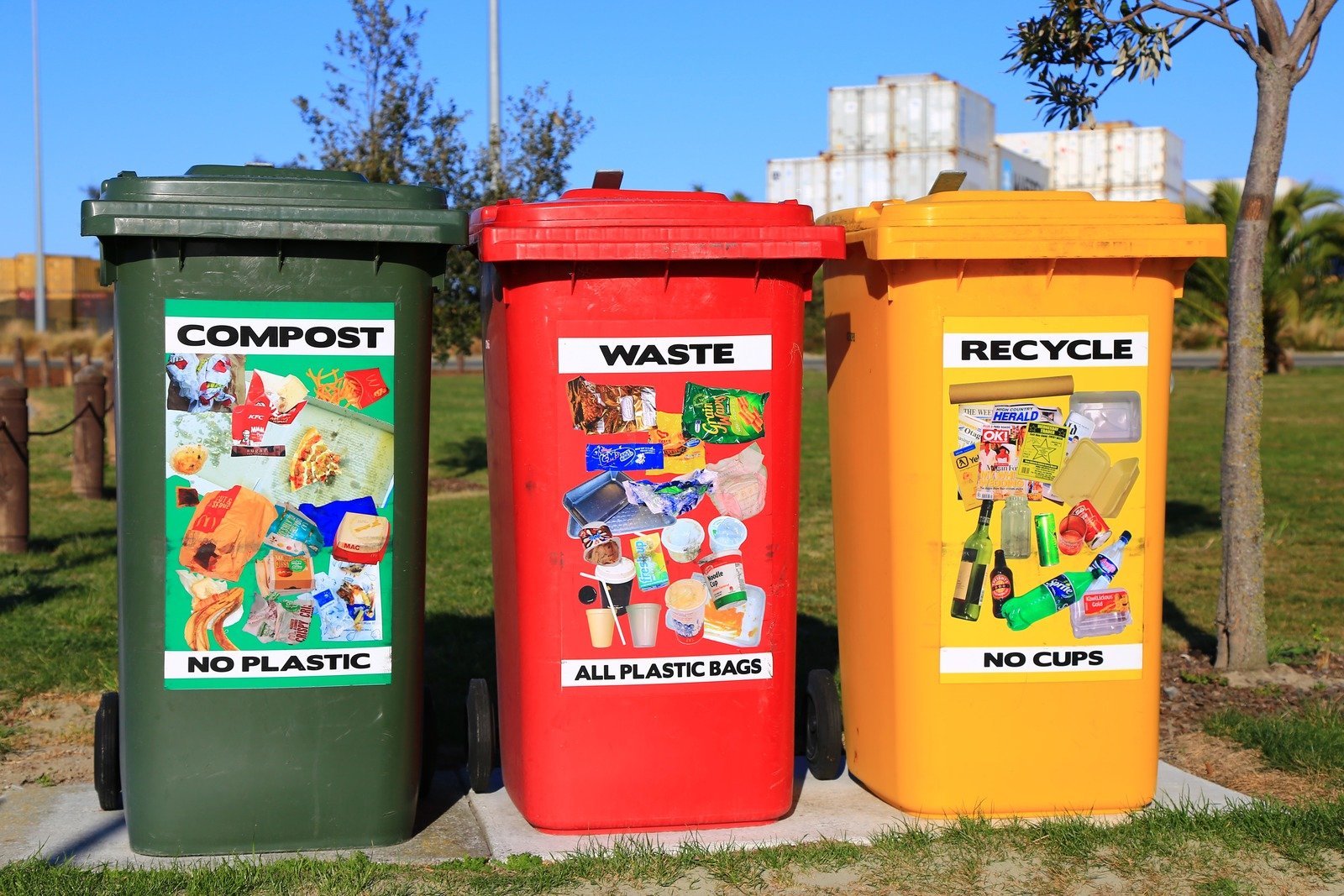Analyzing our daily impact on the environment is becoming increasingly important in the fight against climate change. One way you can do your part to help the environment is by composting.
The process of composting involves breaking down biodegradable materials — like grass, produce, and paper — into an organic material, known as compost, which can then be used to generate healthy soil for plants. Composting at home can be as hands-on or hands-off as you’d like, which is why it's an easy way for someone to reduce their carbon footprint.
Your carbon footprint is determined by the total amount of greenhouse gases generated by your activities. The food you consume and the waste you produce contribute to your carbon footprint, so directing food waste away from the landfill through composting is a great way to fight climate change.
Wealthier and more populous nations like the US, UK, and Canada generate more greenhouse gases than other nations, according to an analysis from Our World in Data. Carbon emissions vary greatly by person — based on factors such as travel, food waste, and electricity usage — but waste contributions from households contribute a fair amount to greenhouse gas emissions across countries.
A study published last year in the journal Proceedings of the National Academy of Sciences found that residential carbon emissions in the US comprise almost one-fifth of global warming gases emitted by the burning of coal, oil, and natural gas. In the EU, biodegradable material coming from households and restaurants is the largest component of all municipal waste, according to the European Environment Agency (EEA).
Most of this biodegradable material is made up of food waste. A recent report from the United Nations Environment Programme (UNEP) found that people globally waste 1 billion tons of food a year, contributing 8% to 10% of global greenhouse gas emissions.
To reduce food waste and lower your carbon footprint, we’ve compiled a list of three ways Global Citizens who want to protect the planet can start composting, no matter where you are in the world.
1. Decide how you want to compost.
Different households in different parts of the world will need to figure out which method of composting works for them.
If you live in a house with a backyard, you may find that it is easy to set up your own composting station. By doing so, you can divert all of your compostable food waste to a large bin, which can then turn into healthy soil for any plants and produce you may want to grow.
In order to generate healthy compost, you’ll need to include a balance of water with “green” and “brown” material. Green materials will contribute nitrogen to your compost pile and include food scraps, yard trimmings, and coffee grounds. Brown materials add carbon to the compost and include leaves, branches, and twigs.

Eco-Cycle, a nonprofit recycler and zero waste organization in the US, has a great guide to backyard composting to get you started.
For those who are interested in composting but don’t want to put in the work to set up a compost bin, it’s easy to devote a small amount of counter or freezer space to food scraps. Set aside a bowl or buy a small compost box and put everything from coffee grounds to pieces of paper towel inside.
Depending on where you live, you should be able to find an accessible drop-off location for compost. To prevent unwanted smells or flies from arising, keep compost scraps in the freezer until you are ready to drop them off.
2. Learn about what you can and cannot compost.
While composting is a great way to stop throwing uneaten food into the garbage can, not everything can be composted.
Dairy products, fat, and meat should not be composted because they can lead to odor problems and attract pests to the compost site. Pet waste — which may contain parasites or germs — and any yard trimmings that are treated with pesticides should also not be composted because they can damage the compost pile.
There is also a variety of surprising items that can be composted. Eggshells, leaves, shredded newspaper, paper coffee filters, and wood chips are just some items that can be generated into healthy soil.
For a more comprehensive list of items that can and cannot be composted, check with your local sanitation department, environmental agency, or community garden about what they accept.
3. See if your city has a compost program.
Many city governments have started composting programs to divert waste from landfills. Notably, New York City’s curbside composting program diverts millions of pounds of biodegradable waste every year due to its curbside composting program, though the program is temporarily suspended due to budget cuts relating to the COVID-19 pandemic.

Thankfully, there are many ways that residents of different cities and countries across the world can compost their food scraps. Environmental groups and recycling centers often set up compost drop-off sites in accessible areas.
In the United States, the website Litterless has compiled a list of groups and locations that accept compost across the country. The app ShareWaste tracks compost locations — whether organized by city governments or volunteers — around the world to connect people who want to start composting.
And if your neighborhood doesn’t have a nearby compost location, consider starting your own.
In order to limit global temperatures to 1.5 degrees Celsius above pre-industrial levels, a goal set by the Paris climate agreement, residents of wealthier nations that contribute the most to climate change should take steps to reduce their carbon footprint.
Composting is a great way to start, so grab a bin and start collecting food scraps today!